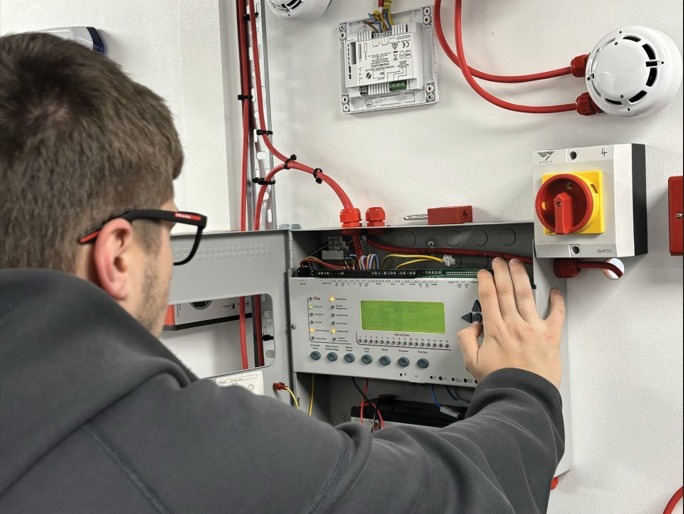
One guaranteed topic of conversation that will continue in 2025 is the skills shortage in the industry, particularly in installation roles.
With the demand for skilled professionals rising, businesses face increasing challenges in meeting industry needs. Rapid technological advancements have only deepened the issue, requiring installers to develop more advanced skill sets and the ability to adapt fast to keep pace.
David Scott, managing director of Skills for Security, recently told PSi how installers can proactively tackle the skills gap and address it head-on, with the right support to build a sustainable workforce:
Although the skills shortage has been a persistent challenge, the solution lies in a renewed focus on education, training, and making the sector more attractive to both school leavers and career changers.
Building partnerships to attract new talent
Investing in partnerships with schools and colleges as well as attending events such as the National Apprenticeship Show is crucial. Many young people remain unaware of the rewarding career opportunities in security and fire safety. This includes its strong growth potential together with its diverse and inclusive nature, especially with the focus on women in security.
Outreach efforts, such as hosting school visits, career fairs, and interactive demonstrations, can change perceptions and highlight the exciting nature of the industry. Introducing students to applications using the latest technologies like AI, machine learning, automation, and smart systems can show how these roles blend innovation with meaningful, impactful work.
This approach has already generated results. At Step Up Expo in London, students engaged with fire and security installers, gained hands-on experience, and saw real opportunities within the sector.
The power of apprenticeships
Apprenticeships are another powerful and proven way to attract and maintain new talent in the industry. Simple to get involved with the right support, these programmes provide clear progression pathways, opportunities to specialise, and job security in a sector with high demand.
The recent success of the World Skills UK competition demonstrated the impact of combining classroom learning with on-the-job training. Apprentices emerged not only with technical expertise but also with confidence and readiness to meet the challenges of a rapidly evolving industry.
Worth noting Apprenticeships are not only successful on the installation side. Offering positions in technical support and administration for example can excel the growth plans of a sustainable business.
Training to keep pace
Effective training programmes are essential – not only for new recruits but also for existing professionals looking to stay ahead of technological changes.
Structured programmes that combine classroom instruction with supervised fieldwork can help newcomers build competence and confidence. For experienced installers, offering workshops, certifications, and access to up-to-date resources ensures they remain skilled and motivated throughout their careers. Tools like Skills On-Demand have been built to aid this.
Tailored training programmes can also encourage career changers with transferable skills – such as those from IT, engineering, or construction – to transition seamlessly into security and fire safety. This approach not only broadens the talent pool but also brings fresh perspectives into the industry.
Industry-wide collaboration
Collaboration across the sector is vital to making these initiatives successful. Businesses, educational institutions, and industry associations must work together to develop standardised training programmes, share best practices, and promote the sector as an attractive career choice.
Highlighting the meaningful and impactful nature of installation work is also key. Installers play a critical role in safeguarding lives, property, and businesses. From protecting family homes to securing large commercial facilities, their work contributes directly to the well-being of society.
This sense of purpose can be a powerful motivator, especially for career changers seeking fulfilment beyond just a pay cheque.
By prioritising education, training, and collaboration, the security and fire safety industry can tackle its skills shortage and secure a strong workforce.
Installation roles offer a unique combination of technical innovation and societal impact, and it’s time to communicate these opportunities to a broader audience. With the right investment in people and programmes, the industry can address current challenges and build a thriving future – one that not only protects lives but also embraces technological innovation to drive progress.



